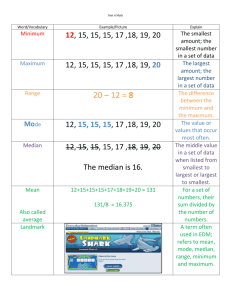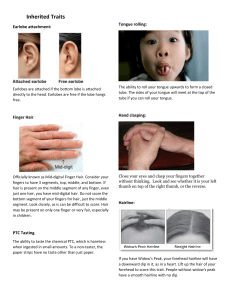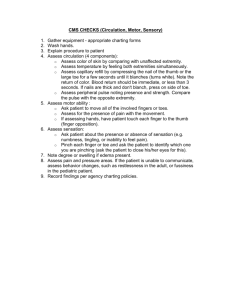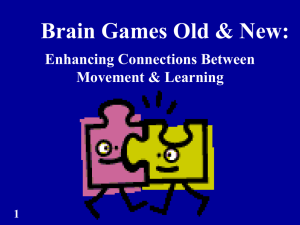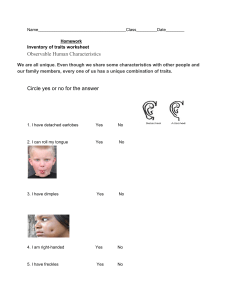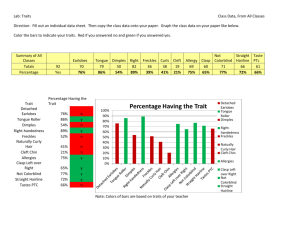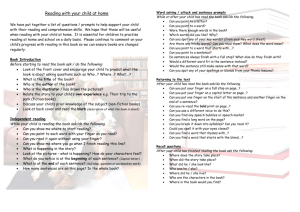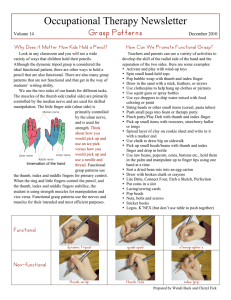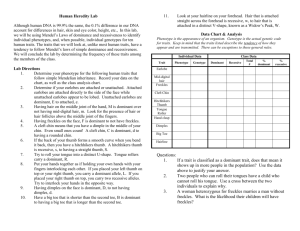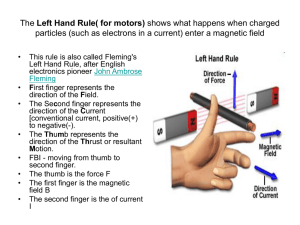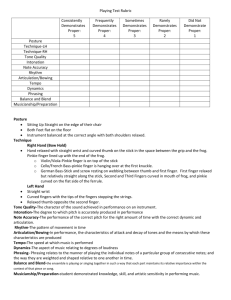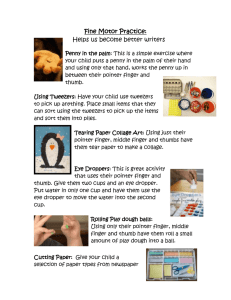Autosomal Human Traits
advertisement
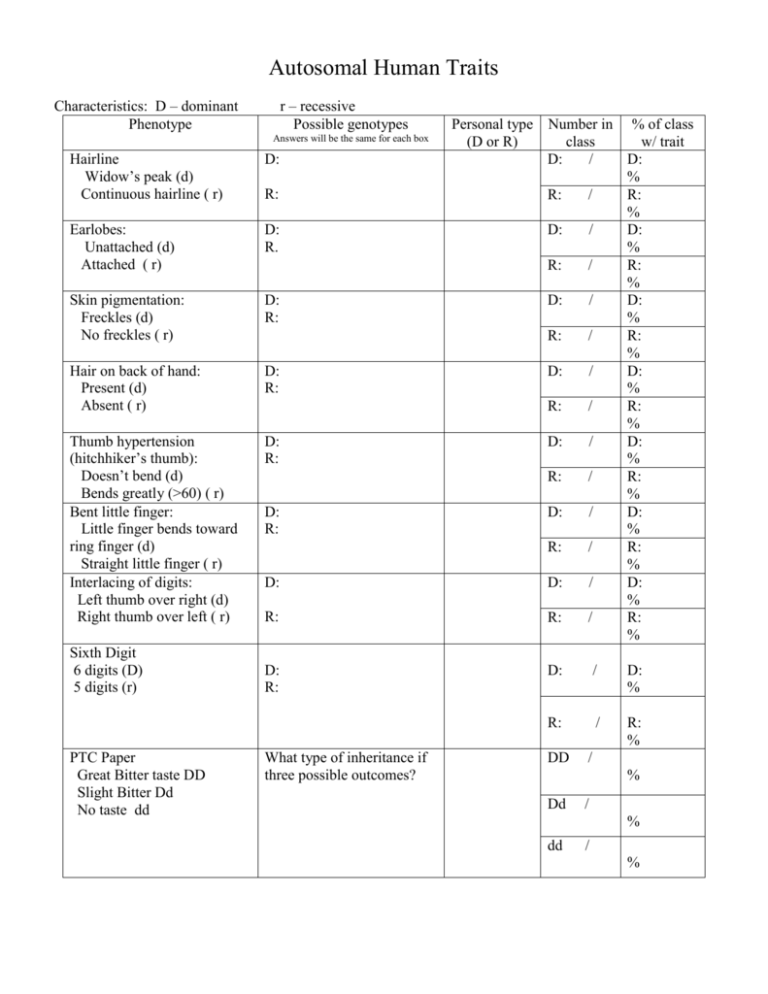
Autosomal Human Traits Characteristics: D – dominant Phenotype r – recessive Possible genotypes Answers will be the same for each box Hairline Widow’s peak (d) Continuous hairline ( r) D: Earlobes: Unattached (d) Attached ( r) D: R. Skin pigmentation: Freckles (d) No freckles ( r) D: R: Hair on back of hand: Present (d) Absent ( r) D: R: Thumb hypertension (hitchhiker’s thumb): Doesn’t bend (d) Bends greatly (>60) ( r) Bent little finger: Little finger bends toward ring finger (d) Straight little finger ( r) Interlacing of digits: Left thumb over right (d) Right thumb over left ( r) D: R: Sixth Digit 6 digits (D) 5 digits (r) PTC Paper Great Bitter taste DD Slight Bitter Dd No taste dd R: D: R: D: R: D: R: What type of inheritance if three possible outcomes? Personal type Number in % of class (D or R) class w/ trait D: / D: % R: / R: % D: / D: % R: / R: % D: / D: % R: / R: % D: / D: % R: / R: % D: / D: % R: / R: % D: / D: % R: / R: % D: / D: % R: / R: % D: / D: % R: / R: % DD / % Dd / % dd / % 1. Are dominant phenotypes always the most common in a population? Explain. 2. Nancy and the members of her immediate family have attached earlobes. Her material grandfather has unattached earlobes. What is the genotype of her material grandfather? 3. Joe does not have a bent finger but his parents do. What are the expected genotypic percentages among the parents’ children? 4. Henry is adopted. He has hair on the back of his hand. Could both of his biological parents have a hair on the back of their hand? _______ Could both of his parents have had no hair on the back of the hand? ___ Explain.
